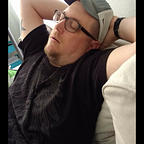Writing: The Art of Deception (The B.S. Artist)
Practice leads one to perfection. 10,000 hours can create an expert. Filling pages with elaborate fluff can leave others in awe.
It is not a happy realization, but it is the reality that comes with the average paycheck for writing. At least that has been my experience so far.
Not everyone can be a bestselling author. There are plenty of opportunities to make money writing though. The question becomes, “how good are you in the skill of the B.S.?”
Creating tag lines for marketing material tends to be more cheese than wit. Producing content for countless platforms requires light, easy to read paragraphs missing depth. No need to worry about challenging the reader to think about a hidden point. I have now made my way into an education career, and suffice it to say, there is still much of the same at play.
I am a first year high school special education teacher. Our school is set up with a co-teaching environment and my push in classes are in English Language Arts. Between helping teach the general education curriculum and preparing Individualized Education Plans (IEP) I get to do plenty of writing, even though it is no longer my main job description.
Here is the thing about it, there is still plenty of B.S. to go around.
Take writing an IEP for example. We prepare these documents to explain how we as a school, specifically the special education department, are going to support a particular student. These legal documents get shared in meetings consisting of the student, their parent, a general education teacher, a counselor, and a special education department head. As the special education teacher, not only do you get to prepare the document, but you get to read the 10 plus pages to the entire group. Yippee! This is where you get to impress them all with your ability to b.s. with the best of them.
I personally would rather get the point. Something like, “Little Johnny has difficulty interacting with other students.”
Simple, understandable, and to the point right? However, when you are expected to write something that sounds “professional” it quickly becomes:
“Due to Little Johnny’s particular diagnosis, he can experience a struggle when attempting to insert himself into a social setting with groups of his peers. Because of this there can be an adverse effect on his educational journey that requires a heavy amount of scaffolding to model proper communication practices to prepare Little Johnny to function as a productive member of society.”
No wonder 50% of special education teachers are out after five years and 75% after 10. It can be overwhelming if you don’t consider yourself much of a writer or a b.s. artist.
So what do you do if you haven’t had your big break but still want to make a living from writing? Or if you are like me where you have a passion to write, but what is available to you is of a different variety?
You have to find creative ways to insert your voice into your work.
Especially considering that the majority of what you are creating is for someone else. Two, be okay with writing a bit (or a lot) of crap. There are times for convictions and there are times where you suck it up and pay your mortgage. Choose wisely.
The life of the average writer is not glamorous. It can be fulfilling though if it is your passion and you need to create. My advice:
Deceive them to the point that they are willing to pay you even more for your B.S. and consider it a fair trade.
